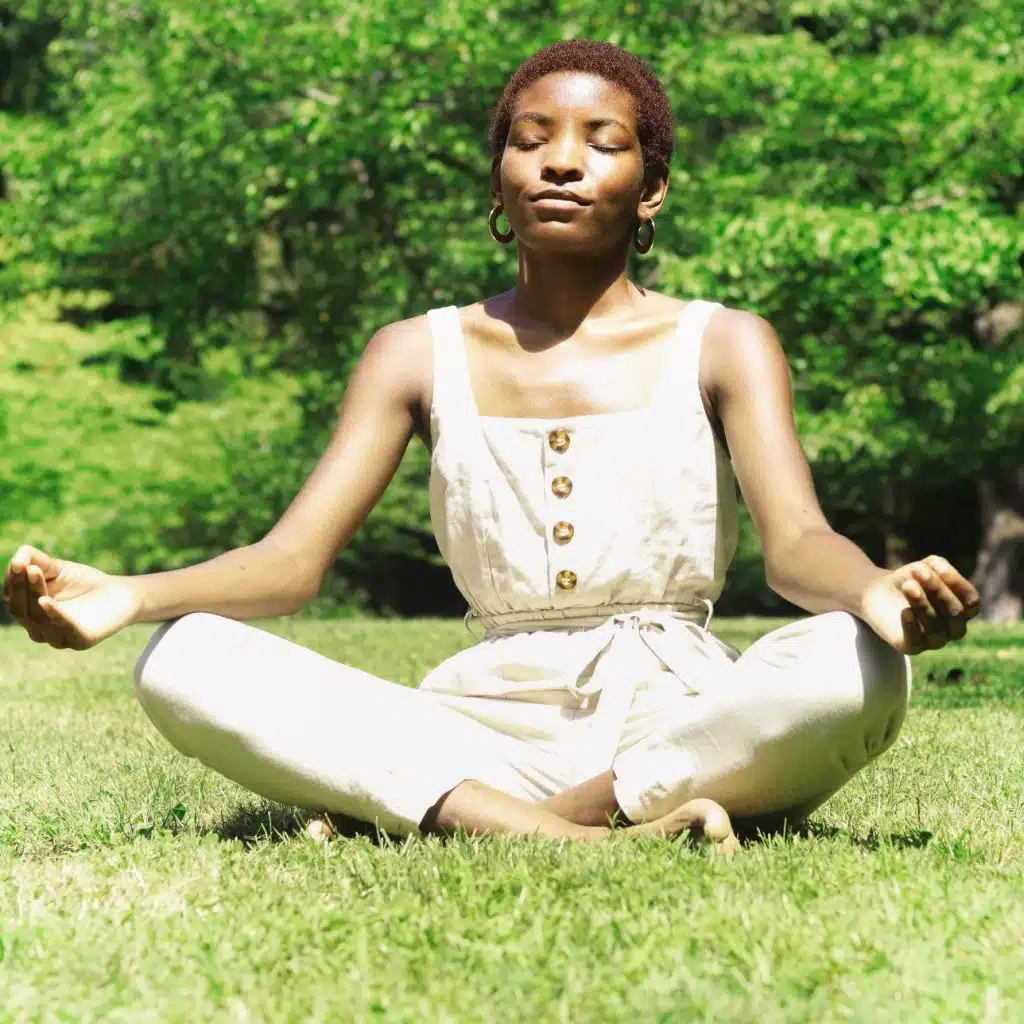
When I suggest to friends that they should take up a meditation practice, I often get responses like “oh that’s not for me” or “I can’t meditate, my mind is always so busy with thoughts”, or “I’ve tried it but thoughts always come into my mind or I’m unable to relax” or ”meditation takes a lot of time – my day is already so busy” or “I don’t believe in those sort of things” and so on. If you’ve used one of these excuses, then it’s time to have a mindset shift.
In this article, I’ll demystify the concept of having a meditation practice and show you that it’s not only for illuminated human beings but a practical tool that every one of us can easily incorporate into our daily lives to help increase our self-awareness and foster our wellbeing.
What are the origins of meditation?
There’s no absolute certainty when meditation officially started. However, there is some consensus between archaeologists and scholars that it’s been around for about 5,000 years. The earliest known documented record of meditation comes from the teachings of Vedas in ancient India.
Meditation practice continued to develop in Taoist China and Buddhist India. In the West, meditation took its first steps in the 1700s, with some references to meditation techniques found in Eastern Philosophy texts being translated into different European languages.
In the 20th century, meditation became more prominent and far removed from its rooted connection with religion and westernised. In the 60s and 70s there were scientific studies to investigate the impact of meditation on mental and physical health. And today, meditation is widely spread practice around the world.

Scientific evidence that meditation is good for you
Meditation is not a remedy for all difficulties or diseases however, a lot of research and evidence suggests that it has several mental and physical benefits for those who practice it regularly.
A study from UCLA discovered that individuals who practiced meditation for a long time had better preserved brains than those who don’t meditate.
Another study from Yale University concluded that mindfulness meditation decreases activity in the default mode network of our brain – the area responsible for mind wandering thoughts which is usually associated with being unhappy, and worrying about the past and future.
In 2011, another study found that mindfulness meditation can change the structure of the brain and increase the cortical thickness in the hippocampus which is responsible for learning and memory. The same study discovered decreases in brain cell volume in the amygdala, which is responsible for anxiety, fear, and stress.
A review study carried by Johns Hopkins in 2014 suggests that “mindfulness meditation programs could help reduce anxiety, depression, and pain in some clinical populations”.
Other studies suggest that regular practice of mindfulness meditation improves attention and concentration.
In summary, there are numerous studies and good evidence which suggest that having a meditation practice helps to alleviate levels of anxiety and depression, improve attention, concentration and overall mental and physical wellbeing. And if the research is right, just a few minutes of meditation a day will make a big difference. So why don’t you give it a try?
How to start a meditation practice
Meditating is very simple. You just need to sit, close your eyes, focus on your breathing and let your mind do the rest.
First, you need to understand that there’s no good or bad meditation. There’s only awareness and non-awareness. It’s very natural that when you experience your first guided meditation, your mind will get busy, easily distracted and restless.
The trick is to be aware that you’re lost in thought, and return your focus to your breath. This is all you have to keep doing – being aware when you’re distracted and returning to your focus point – the breath. With consistency and practice, the distractions will get shorter and you’ll get to a place of stillness where no effort is required.

3 tips to keep you engaged with your meditation
- To master any subject in life we need to be consistent and practice, so you need to do the same with your meditation practice every day – even if it’s just 5 for minutes.
- If thoughts come into your mind while meditating, don’t fight them; just acknowledge the thoughts, breathe in and out, focus on the breathing, and let them go.
- Select background music that inspires you while you meditate. This will help you focus and dive deep into your soul.






